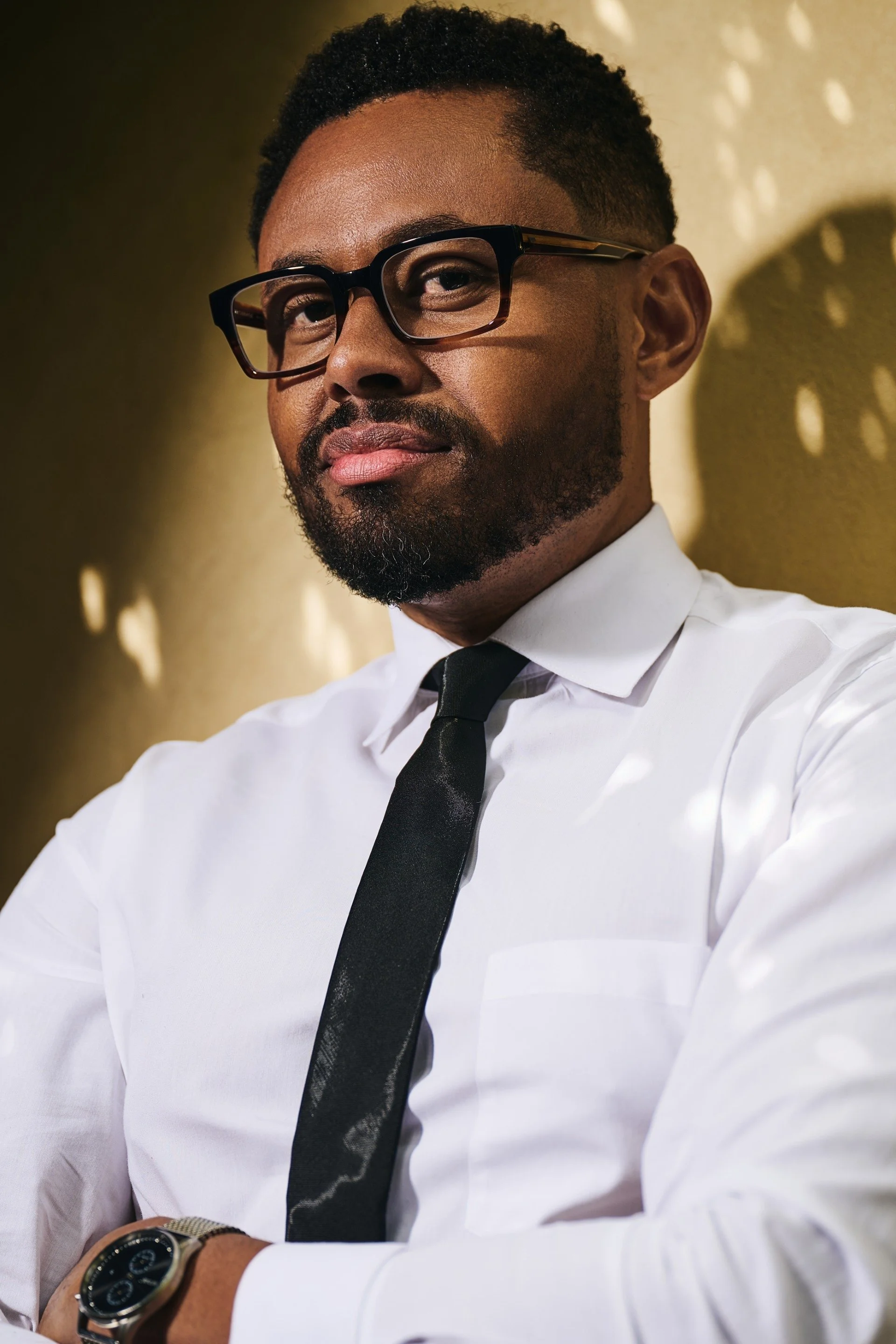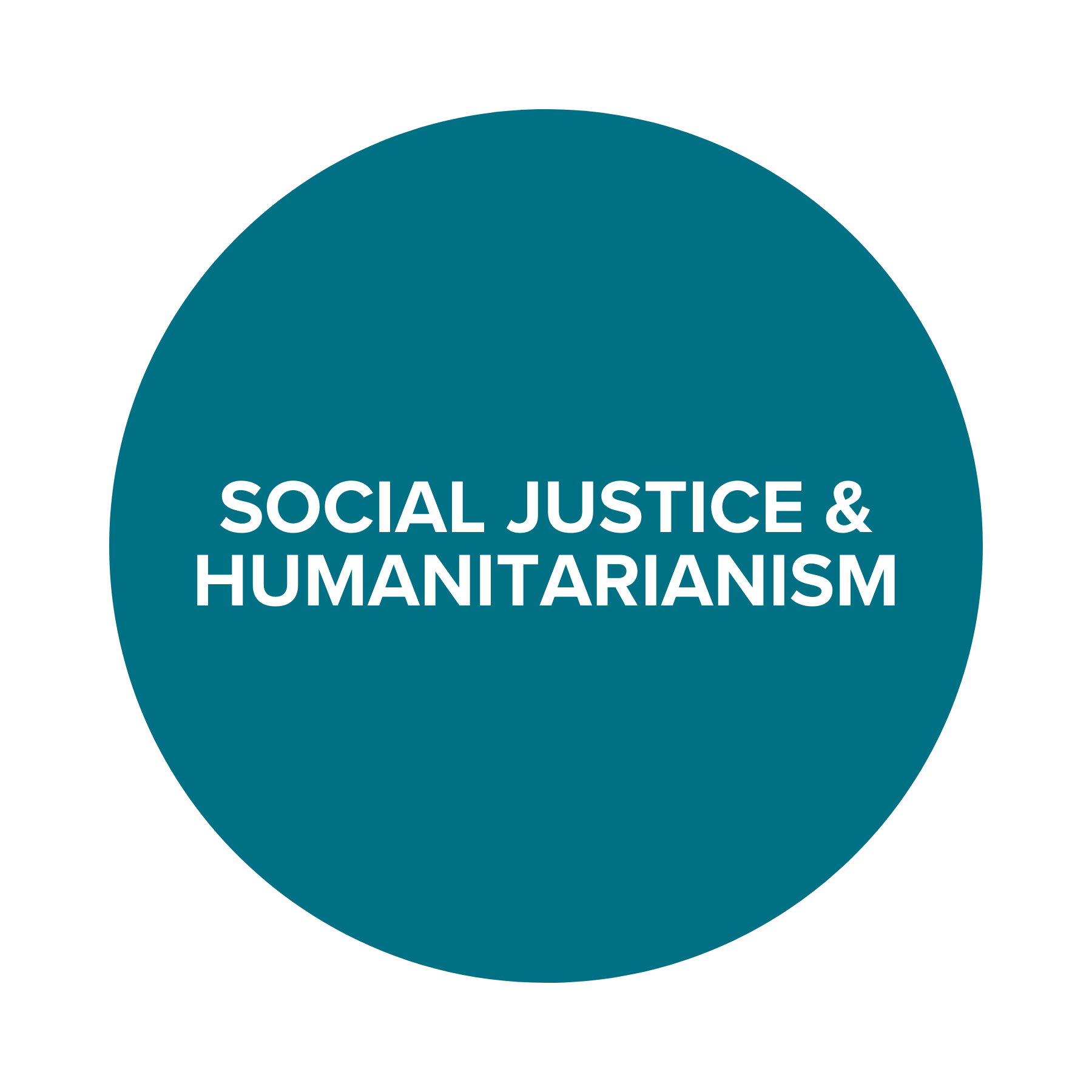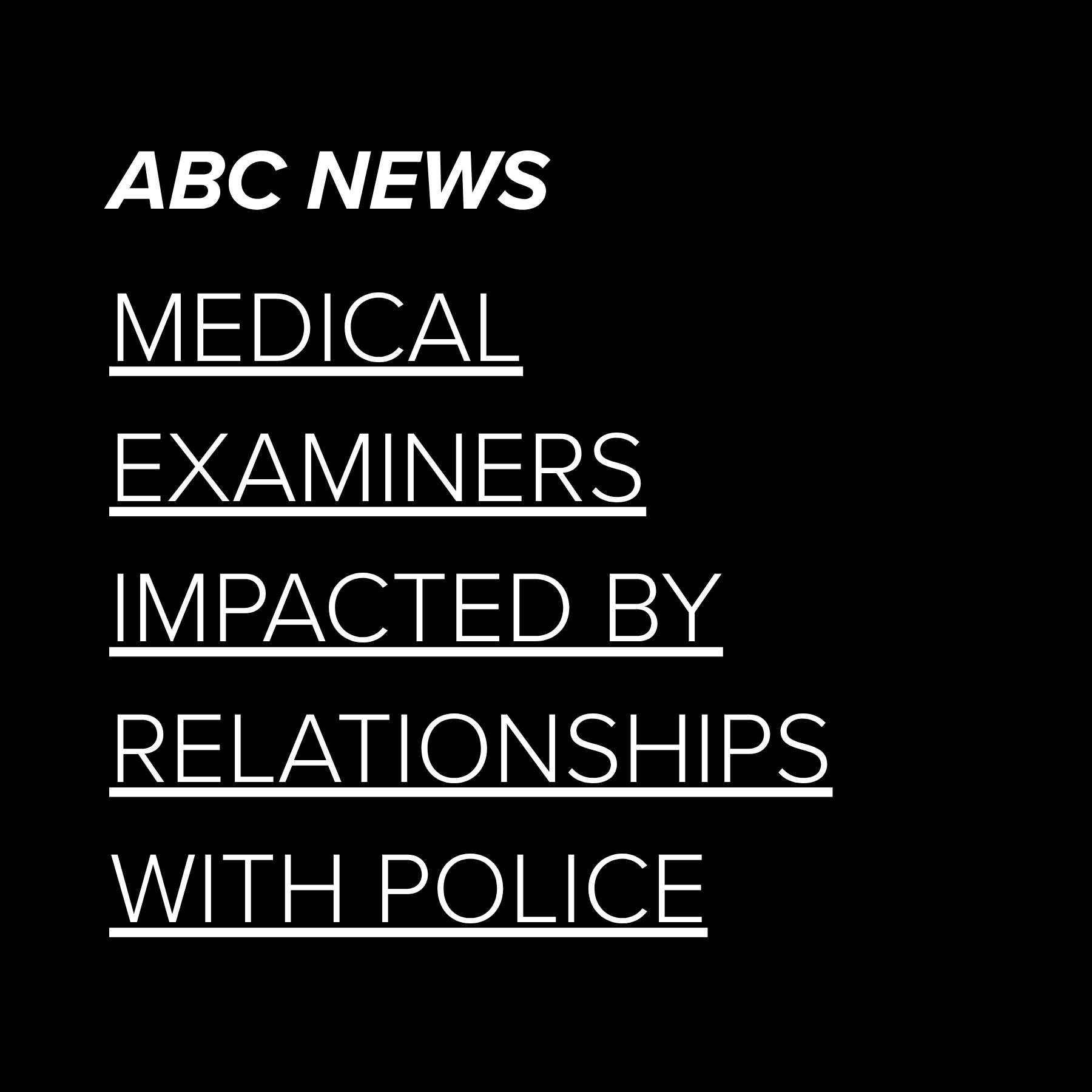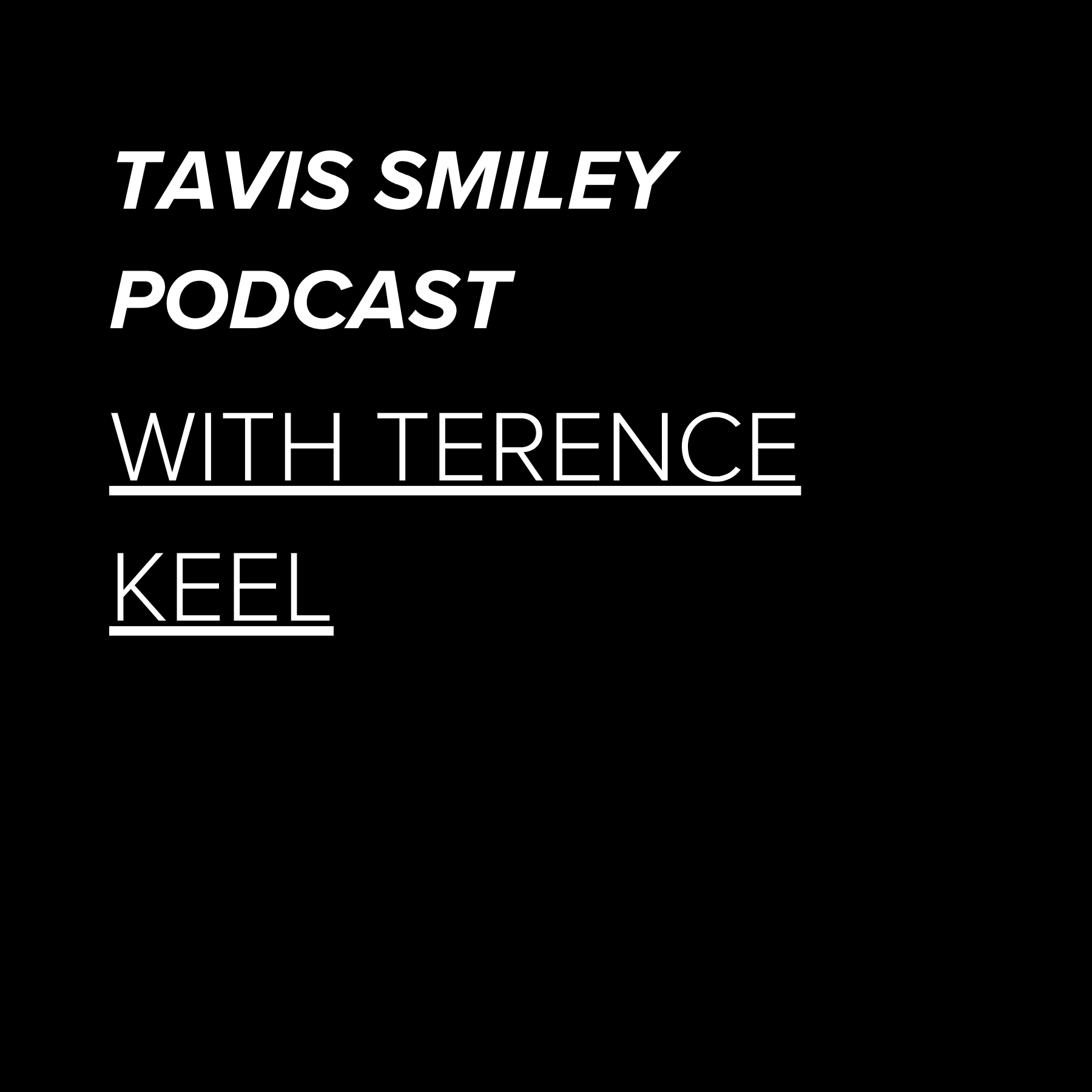Combating the unseen forces shaping who lives, who dies, and who thrives.
Terence Keel
PROFESSOR OF HUMAN BIOLOGY AND SOCIETY
JUSTICE REFORM ADVOCATE
AUTHOR
SPEAKING FEE: $10,000 - $15,000
EXCLUSIVE
Meet Terence
Founder of The Lab for BioCritical Studies, an interdisciplinary research space on discrimination and equality
Award-winning scholar on African American Studies, Sociology and Genetics
Author of The Coroner’s Silence: Death Records and the Hidden Victims of Police Violence
Terence Keel is a professor at the University of California, Los Angeles where he works in the Department of African American Studies and the UCLA Institute for Society and Genetics. His teaching, research, and community engagement are concerned with abolishing discrimination within our society. For the last decade, Terence has become an outspoken critic of how racism haunts science, public policy, art, and even our religious beliefs. He is the author of Divine Variations: How Christian Thought Became Racial Science, winner of the 2021 Iris Book Award, sponsored by the Center for Religion & the Human at Indiana University Bloomington, as well as the 2018 Choice Award for Outstanding Academic Title, sponsored by the American Library Association. Terence is the co-editor of the forthcoming book, Critical Approaches to Science and Religion.
In 2020, he founded the Lab for BioCritical Studies—an interdisciplinary space committed to studying how discrimination, inequality, and resilience are embodied in human and nonhuman life. Terence is also the Advisor for Structural Competency and Innovation for the UCLA Simulation Center at the David Geffen School of Medicine. His guidance helps healthcare providers, students and trainees understand how symptoms, clinical problems, diseases and attitudes towards patients and health systems are influenced by upstream social determinants of health, such as economic or social conditions affecting health status.
He has received several awards and honors including the 2018 Harold J. Plous Award for Distinguished Scholarship and Teaching at the University of California, Santa Barbara as well as named a Fellow of the International Society for Science and Religion.
Drawing on the collaborative work of his Lab for BioCritical Studies, Terence is writing a third book titled Society after Nihilism: The Medicolegal Erasure of Accountability at the End of American Life. In this book, he identifies troubling forms of discrimination that haunt public record laws, autopsy science, and unarmed death while under the custody of law enforcement.
Terence is an alum of Xavier of Louisiana, earned his Master of Theological Studies from Harvard Divinity School, and holds a PhD from Harvard University under the Committee on the Study of Religion, the Department of the History of Science, and the Department of African and African American Studies.
SPEAKING TOPICS
-
At least three Americans will die today at the hands of the police officers sworn to protect them. While cases like George Floyd's and Sandra Bland's ignite national outrage, most people killed in-custody fade into obscurity—their stories buried alongside their bodies. Far more Americans than we realize are killed by police who are unarmed, in medical distress, or in jail before trial. In just last 20 years, police have killed at least 32,104 people during arrest. This is more than twice the number of all prisoners executed in America since 1608. Tragically, many people who die while in the custody of police would still be alive if they had access to institutions of care and shelter instead of law enforcement. The death of civilians during arrest and in jail is proof that our criminal justice system is failing to keep us safe. In this unflinching exploration of the criminal justice system, award-winning scholar Terence Keel uncovers a disturbing reality: death investigators regularly obscure the violent circumstances surrounding in-custody deaths, and this injustice threatens everyone across our nation.
Drawing on exhaustive research—including forensic document analysis, public health data, and intimate interviews with grieving families—Terence meticulously documents how the system that investigates in-custody deaths actually shields law enforcement and local officials from accountability. Withheld names, incomplete autopsies, and misclassified causes of death create a pattern of institutional protection that crosses jurisdictional boundaries and reveals the structural mechanisms that systematically erase state violence. Drawing on his latest book, The Coroner’s Silence, Terence provides a blueprint for fundamental reform in how we investigate, record, and ultimately preserve the dignity of people under the power of the state. Terence urges us to reframe what we think about safety, accountability, and care in America and explains how we can join local organizations working to end lethal state violence. A system capable of taking our lives without consequences can not make us safe.
-
What if the breakthrough your team needs isn't locked away in an AI algorithm or consultant's report, but sitting in your break room or living in your community? The most innovative solutions often come from those closest to the problem—everyday people whose lived experiences hold keys to transformation that traditional expertise overlooks.
Some of the most exciting and significant examples of changemaking weren't accidents—they represent a pattern of hidden expertise that surrounds us daily.
We miss these experts because our beliefs about knowledge, certainty, and wisdom are too narrow. We scan for credentials instead of insights, titles instead of truth. Yet the most junior person on a team or individuals outside your organization’s standard way of doing things may actually unlock the solutions to your biggest challenges.
In this engaging talk, award-winning author, scholar, and social change leader Terence Keel reveals how to identify and cultivate the wisdom of others hiding in plain sight. Drawing from his experience working with community organizations around the nation and his knowledge of history, science, and culture, audiences will learn practical strategies to:
· Recognize valuable perspectives that conventional metrics of success and consulting often miss
· Create systems that surface insights from unexpected sources
· Build teams that leverage diverse forms of expertise
· Transform your approach to problem-solving by expanding who gets heard
Stop searching for experts—start discovering the hidden savants around you.
-
Humans are not created by nature; we are made in the image of the societies we design. This is what the director of the CDC meant when she recently declared that structural racism is a public health issue. If we continue to live in a world where practices like police profiling, residential segregation, and industrial contamination unequally impact where people of color live then we should expect the consequences of these racist practices to appear in our bodies. In this talk, Terence Keel explains why our ability to live with dignity and health is not a matter of chance or fate, but is a result of planning and design. With rising health disparities in the U.S. and a healthcare system on the verge of collapse, the possibility of anyone living well is becoming increasingly unlikely. Reflecting on cutting edge research within the field of public health, this talk gives you tools to understand how humans embody the society we inherit and how we can literally create health through more equitable designs.
-
Racism haunts nearly every aspect of our society—but it doesn’t have to. Scientists since the 1950s have proven that humans cannot be classified into biological races. Did you know that sickle cell anemia can be found in Spain, Malta, and Greece among people who do not have African ancestry? Or that race has nothing to do with why some of us can enjoy milk and ice cream? Or that living near a freeway can tell us more about your chances for having asthma than your so-called racial identity? Drawing on the last 70 years of scientific research and discovery, Terence Keel explains all you need to know about why race is an illusion, why you are nearly identical to people who look different than you, and how understanding science can help us become anti-racist.
-
Is it possible that our religious beliefs are responsible for the racism and discrimination troubling our society today? There is ample evidence to suggest this might be true: from Christian merchants who purchased Black people during the transatlantic slave trade, to the persecution of European Jews during the Holocaust, and the recent support of white evangelicals of the rioters who stormed the Capitol. In this talk, Terence Keel takes an unflinching look at the religious past of Europe and America to help explain the sources of present-day social and political discrimination. He explains that while our religious beliefs have clearly divided us there are resources within the traditions of American thought—from the work of Frederick Douglass to Octavia Butler—that can help us design better beliefs about the world and others within it.










